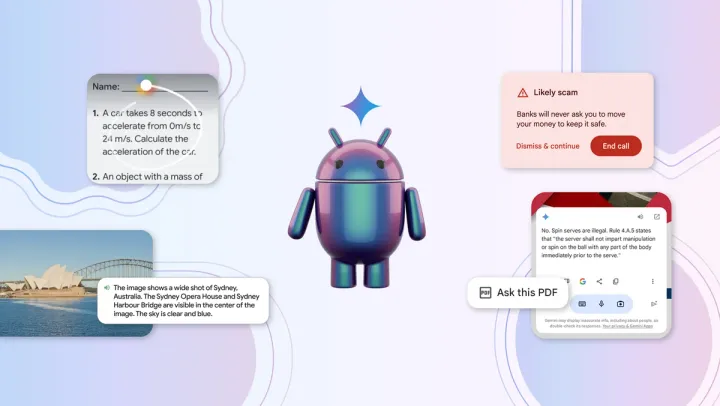BD Insider 232: Zimbabwe's new ZiG banknotes have QR codes
Inside: QR codes on Zimbabwe's new banknotes and the AI for beginners learning series in Hausa by Google and Data Science Network.

Press freedom dey?
The World Press Freedom Day—held on Friday, May 3—was meant to celebrate a free press, but in Nigeria, journalists faced another reality. The 2015 Cybercrimes Act, originally intended for cyberstalking and other violations, has become a weapon.
Section 24, with its vague definitions of "annoyance" and "insult," has been abused to prosecute at least 25 journalists. This stifles investigative reporting and critical voices.
Adding insult to injury, on this year's World Press Freedom Day, Daniel Ojukwu, an investigative journalist, was arrested under this Act. Ojukwu has remained incommunicado for over four days and denied contact with family, lawyers, and his employer at the Foundation for Investigative Journalism.
The arrest of Ojukwu underscores the ongoing struggle for press freedom in Nigeria, a fight made even more complex by the government's attempts to regulate social media, as evidenced by the 2021 Twitter ban.
In today's letter, we examine:
- the layoffs at Bolt Nigeria
- QR codes on Zimbabwe's new banknotes
- the AI for beginners learning series in Hausa
We also curated updates on the state of funding in Africa, other noteworthy information and several opportunities.
The big three!
#1. Bolt trims Nigerian workforce in restructuring move
The news: Ride-hailing company Bolt has laid off nearly half of its staff in Nigeria, according to a report by TechNext. The move, which impacted senior management as well, is being framed by Bolt as a "discontinued collaboration", not layoffs.
In a statement, Bolt sought to distance itself from the term "layoffs," which the spokesperson claims "implies massively downsizing the team because the company is struggling financially". Instead, they framed it as a strategic restructuring to optimise customer support and operational efficiency in Nigeria.
Rewind: This is not the first time Bolt has reduced its Nigerian staff. In February 2023, the company laid off roughly a third of its Nigerian employees, mostly junior and mid-level staff. These latest cuts come amidst a global recruitment drive by Bolt, raising questions about the company's strategy in Nigeria.
However, Markus Villig, Bolt's founder and CEO, stated last year during a trip to Africa that the company would "continue to grow its presence" on the continent. He emphasized the "massive potential" for job creation through driver and courier opportunities. Villig backed his statement with a commitment – a $530 million investment plan for Africa. Bendada.com is yet to confirm the implementation of this investment at the time of this report.
#2. Zimbabwe introduces QR codes on banknotes
Start here: Last week, Zimbabwe took a step towards economic stability with the launch of its new national currency, the Zim Gold (ZiG). Backed by $100 million in cash and $185 million worth of gold, the ZiG replaced the previous Zimbabwean dollar which suffered from hyperinflation.
The new currency aims to curb inflation and promote wider circulation within the country. Replacing the U.S. dollar as the dominant currency is a key objective, with the largest ZiG note valued at $15 (200 ZiG).

The news: Adding a layer of technological innovation, the ZiG banknotes come embedded with QR codes. These quick response codes are designed to be scanned by smartphones or dedicated devices. According to the Zimbabwe Coalition on Debt and Development, the QR codes suggest the government's future adoption of blockchain technology, potentially leading to a central bank digital currency.
The QR codes also offer several potential benefits beyond authentication. They can help track stolen money, trace illegal transactions and even identify criminals involved in ransom payments.
Know more: Zimbabwe is not the first African nation to explore this innovation.
In 2017, Ghana introduced a QR code on its ¢5 note to educate the public about the banknote's security features. The use of QR codes on currency isn't limited to Africa. Countries like the Netherlands and Russia have also incorporated them into their banknotes, suggesting a broader global interest in this technology's potential for enhanced security and information sharing.
#3. Google launches AI for beginners learning series in Hausa
The news: In an effort to bridge the digital divide in Northern Nigeria, Google, along with the Kaduna State Government and Data Science Nigeria, launched the "AI for Beginners in Hausa Learning content" last week. This initiative specifically targets empowering women in the region through accessible AI education in their native language.
🚀 This week we unveiled the "The AI for Beginners in Hausa Learning content"! Hausa, one of Africa's most spoken languages, is rich in culture and history. Now, it's becoming a gateway to AI education. #ArewaTech4Ladies pic.twitter.com/LwFS9wVkFv
— Google in Africa (@googleafrica) May 3, 2024
Why it matters: Hausa, spoken by over 130 million people worldwide, is one of the most popular languages in Africa. However, access to technology and education in Hausa has often been limited. This initiative directly addresses this gap by delivering complex AI concepts in a familiar and culturally relevant format.
"By bringing AI education to the forefront in Hausa," said Dr. Bayo Adekanbi, founder and CEO of Data Science Nigeria. "We are creating opportunities for innovation, entrepreneurship, and social impact. These women are Northern Nigeria's future leaders and innovators, and AI is the technology that can help them reach their full potential."
Know more: The series is currently available on YouTube, the Data Science Nigeria platform, and the National Information Technology Development Agency education portal. This widespread accessibility ensures women across the region have the opportunity to develop valuable AI skills and participate in the ever-growing digital economy.
💰 State of Funding in Africa
CcHUB has announced the second cohort for the Mastercard Foundation EdTech Fellowship programme. This cohort brings together twelve Nigerian startups – Topset, Exam Scholar, Data Entry Academy, Genti Media, Edusko, Harde Business School Limited, Proud African Roots, Magic Lab Academy, Vinsighte Limited, IM FLOW, WIFICOMBAT, and Skill Up With Kahdsole (SUWK).
According to a statement seen by Bendada.com, each startup will receive up to $100,000 in equity-free funding, along with post-program advisory services for up to twelve months.
Other African startups that raised last week include:
- Chowdeck, a Nigerian on-demand delivery platform raised $2.5 million in seed funding from Y Combinator and Goodwater Capital and several local and foreign angel investors.
- Nigerian logistics startup Renda secured $1.9 million in pre-seed funding. The pre-seed, which is a mix of debt ($600,000) and equity ($1.3 million), was led by Ingressive Capital, with participation from Techstars Toronto, Founders Factory Africa, Magic Fund, Golden Palm Investments, Reflect Ventures, SeedFi and Vastly Valuable Ventures.
- Kubik, an Ethiopian cleantech startup bagged a $1.9 million seed extension, months after announcing initial equity investment (bringing the total seed funding to $5.24 million). The latest funding was backed by African Renaissance Partners, Endgame Capital and King Philanthropies.
- Kenyan agri-tech startup Farm to Feed has raised an undisclosed amount of funding from Renew Capital.
📚 Noteworthy
Here are other important stories in the media:
- A talent shortfall threatens cybersecurity in Africa: Andrew Christian was at the Africa Cloud and Security Summit by CIO Africa in Lagos last week, he writes on why Africa is experiencing the highest average of cyberattacks per week per organisation.
- Wave is the only African startup on YC’s top-earning startup list: Senegalese fintech Wave has been listed as the only African Y Combinator alumni with the highest revenue, according to the 2024 opt-in list.
- West African subsea cables repaired after weeks-long damage: Following enduring weeks of disruptions, West Africa is on the brink of getting back to a steady internet connection via normal routes. The region's off-coast undersea cables severed since last month are now being brought back to capacity.
- 3MTT Program is bridging the digital divide despite challenges: Nigeria's ambitious 3MTT program to train 3 million tech talents is underway. We explore the program's implementation with a training provider to understand its progress after the first cohort's completion.
💼 Opportunities
Jobs
We carefully curate open opportunities in Product & Design, Data & Engineering, and Admin & Growth every week.
Product & Design
- Enyata — Product Manager, Lagos
- Moniepoint — UI/UX Designer, Lagos
- Pulse — Design Lead, Lagos
Data & Engineering
- Moniepoint — Frontend Architect, UK
- Kuda — Android Engineer, South Africa
- Jumia — Senior Frontend Engineer, Nigeria
Admin & Growth
- Bolt — Senior BizDev Manager, Nigeria
- Paystack — Marketing Officer, South Africa
- MTN — Digital Marketing Officer, Benin Republic
Other opportunities
- Call for delegates: Ahead of the Journalism, Digital Tech and AI Dialogue next month, the Centre for Journalism Innovation and Development is inviting journalists interested in digital technology and artificial intelligence to apply by May 6, to participate in the event.
- For African early-stage startups: Applications for Pitch2Win are now open. The winner gets $10,000 equity-free prize money and an opportunity to attend the IVS Event in Kyoto Japan. Deadline: May 5, 2024.
Thanks for reading this edition.
Have a great week!








Comments ()